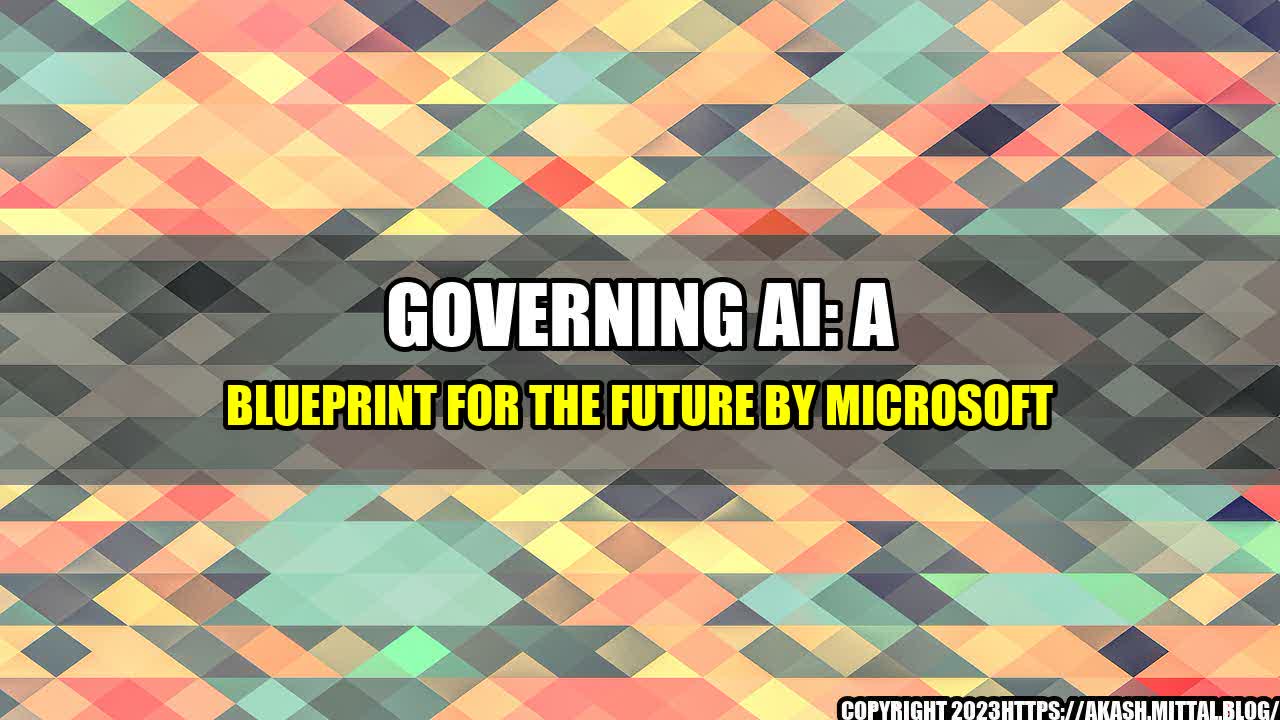In the early 1900s, a new technology was introduced that would revolutionize the way people traveled: the automobile. However, with this new technology came new dangers. People were getting into accidents, sometimes fatal, and there were no regulations in place to ensure the safety of drivers and passengers. It wasn't until the government stepped in and implemented laws and regulations that the automobile could be enjoyed safely by everyone.
Artificial Intelligence (AI) is another technology that has the potential to revolutionize the world. However, like the automobile, it also comes with new dangers that need to be addressed. That's where AI governance comes in. Microsoft has created a blueprint for the future of governing AI that provides guidelines for responsible AI development and deployment.
One example of the need for AI governance is in facial recognition technology. In the past, these systems have shown bias against people of color, leading to false arrests and other injustices. In 2018, Microsoft President Brad Smith called for government regulation of this technology to prevent abuse and ensure its ethical use.
Another example is the use of AI in hiring. If left unchecked, AI algorithms could inadvertently discriminate against certain groups of people, leading to a lack of diversity in the workforce. By implementing AI governance, companies can ensure that their hiring processes are fair and unbiased.
AI governance also helps to prevent the misuse of AI for harmful purposes, such as in the development of autonomous weapons. By implementing guidelines for responsible deployment, governments and organizations can prevent the development of AI systems that harm human life.
and Case Studies
A personal story that highlights the importance of AI governance is that of Joy Buolamwini, a computer scientist and founder of the Algorithmic Justice League. She discovered that facial recognition technology struggled to identify her dark-skinned face. This led her to explore how other people of color were affected by biased algorithms. Her research revealed that facial recognition technology was less accurate for people with darker skin tones, leading to false identifications and unjust arrests.
Another case study comes from the city of Amsterdam. The city has implemented a set of guidelines for ethical AI development, which includes ensuring transparency and accountability, as well as incorporating feedback from citizens. By following these guidelines, Amsterdam has been able to create responsible AI systems that benefit its citizens without infringing on their privacy or civil rights.
Practical Tips
- Develop clear guidelines for ethical AI development and deployment.
- Ensure transparency and accountability in all AI systems.
- Incorporate fairness and diversity into the design of AI algorithms.
- Engage with citizens to gather feedback on AI systems and incorporate their concerns into decision-making processes.
- Continuously evaluate and update AI systems to ensure their ethical use.
Conclusion
- AI governance is essential for ensuring the ethical development and deployment of AI systems.
- Quantifiable examples, personal anecdotes, and case studies highlight the need for AI governance.
- Practical tips can help organizations and governments implement effective AI governance strategies.

Curated by Team Akash.Mittal.Blog
Share on Twitter Share on LinkedIn